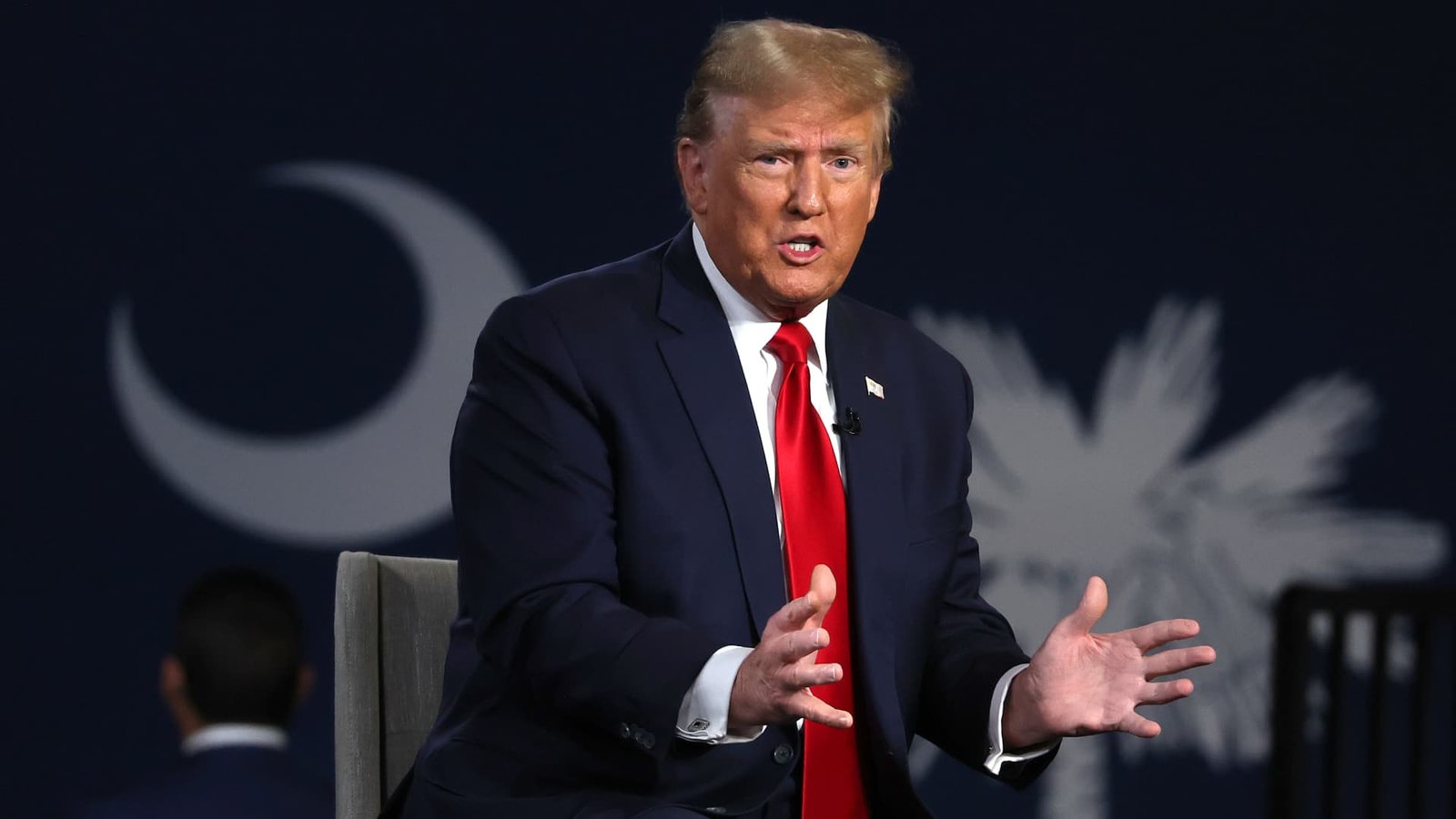Donald Trump, the former President of the United States and a Republican presidential candidate, is currently facing a significant legal battle as he races to stave off civil penalties totaling nearly $540 million. Trump’s lawyers are working tirelessly to find a solution that would allow him to avoid having to put up the full amount in cash or bonds.
The civil penalties that Trump is facing stem from multiple cases, including a New York civil business fraud case where he is facing $454 million in fines and interest alone. His lawyers argue that requiring him to fully secure his judgments would cause him irreparable harm and force him to quickly sell off properties to come up with the necessary funds.
One option that Trump’s lawyers have not mentioned in court filings is the possibility of offering up some of his properties as collateral to borrow the needed funds. Legal experts suggest that there are many private lenders in the debt and private equity markets who could potentially lend to Trump, using his real estate assets as security.
However, the irony of Trump using his real estate assets to fight a lawsuit in which he was found liable for fraudulently inflating property values is not lost on many. The accuracy of the appraisals of Trump’s assets, as well as the potential existing mortgages on these properties, are key factors that could impact his ability to secure the necessary funds.
As of late January, the Trump Organization comprised 415 entities, with 70 operating entities that generate revenue. Trump’s real estate holdings in New York City alone are estimated to be worth $690 million. New York Attorney General Letitia James, who brought the fraud case against Trump, has stated that she would seize his real estate assets if he cannot pay the civil penalty.
Trump has claimed to have “substantially in excess of $400 million in cash” but may be forced to sell properties to raise capital if required to secure the full penalty. Despite offering to post a $100 million bond, the proposal was rejected by a New York appeals court judge.
If Trump does decide to sell assets to meet his undertaking, he would have to act quickly to market his properties and close any deals to free up the necessary funds. However, there have been no indications that he is actively pursuing this option at the moment.
Legal experts believe that Trump could likely secure a loan to help him meet his undertaking, given his reputation within New York financial circles. However, the key challenge would be providing enough collateral to satisfy the lenders.
In conclusion, Donald Trump finds himself in a precarious legal situation as he navigates the complex process of fighting off multiple civil penalties. How he chooses to proceed in the coming weeks could have a significant impact on his financial future and political aspirations.

